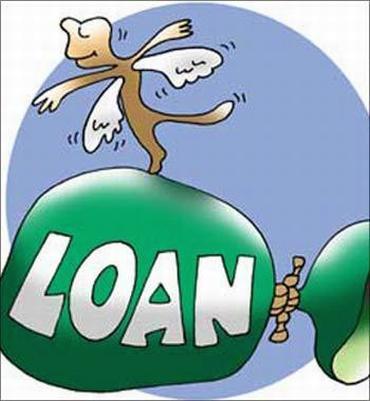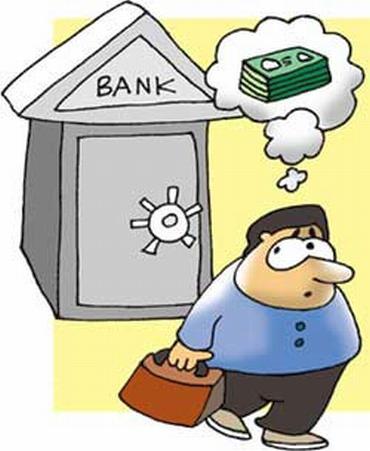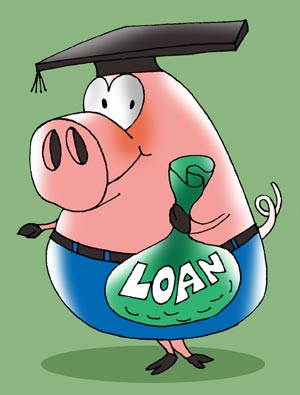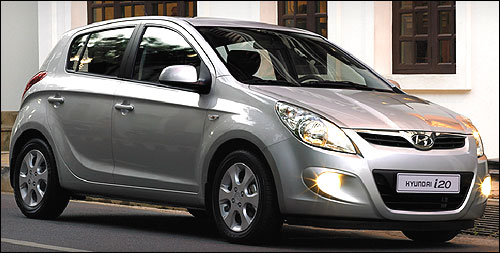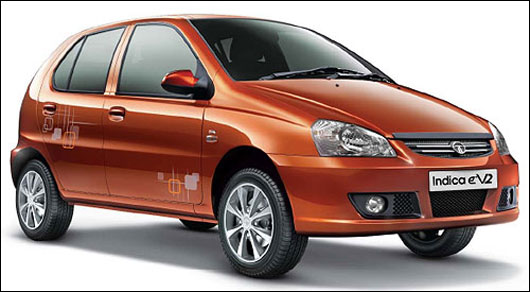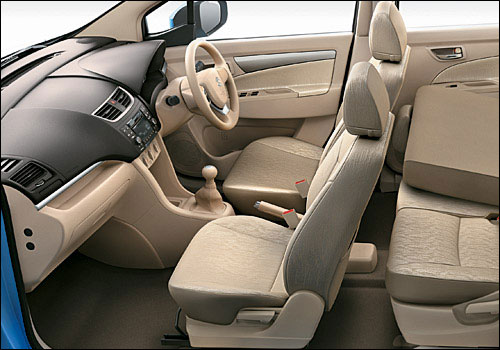 | « Back to article | Print this article |
10 smart money tips for buying a car
Investing your hard earned money to buy your dream car? Follow these expert tips and advice to get the best deal.
Are high interest rates in the car loans segment spoiling your plans for a new car?
Has the recent hike in price of cars dented all plans to purchase a big car?
Is the hike in fuel prices drilling a hole in your pocket?
Sadly, this seems more of a red light than a speed bump. If conditions in the Indian market remain unaltered, not much is going to change in the near future for the car industry.
However, it’s not something to worry about.
We talked to certain bankers and advisers, and they have given alternative solutions to these problems, in order to ensure a smooth ride on this bouncy road. So sit back, buckle up and read on what to do now.
Courtesy:
10 smart money tips for buying a car
1. Try out car loans, but keep the duration short
For Indians, car loans can prove a great saviour. With so many international companies coming to India, and Indian companies buying out international carmakers, India's future in cars seems bright. However, car loans are an individual's choice and might not work for everybody.
Normally as a consumer, we can get tempted to go for long-term loans, offering a lesser rate of interest. This can generally happen when we are in two minds to upgrade to a luxury car or when we would normally buy a C-segment car. Bankers have a word of advise for people: try to keep your loan term short.
On this matter ICICI bank group head (car & commercial vehicle loans) Ravi Narayanan opines, "Would interest rates increase further or would decrease in the future? No one can predict, at such a time its better to go for a 3 to 4 year loan, rather than settling for a fixed loan that goes up to 6 to 7 years."
10 smart money tips for buying a car
2. Avoid taking the complete loan
This is one advise car buyers should heed very seriously. Bankers believe that it is in the best interest of customers not to take a 100 per cent loan for their cars. Many times this proposition seems very tempting, especially when one is exchanging an old car for a new model. However, bankers believe no matter what the interest rate, high or low, it is always better to pay 20 to 25 per cent of the total car cost as cash down payment.
It is very important as it gives car owners a realistic sense of how their monthly instalments will work out. In addition, it also makes car costs fit ones pockets.
10 smart money tips for buying a car
3. Think before reducing your term loan
Many times car owners decide to reduce their term loan. However, bankers have a word of caution for this: This might work for small cars, but not for big ones.
This is because bigger cars generally carry a bigger monthly installment bracket with them. For owners of bigger cars, an inability to pay a higher monthly installment can put them in the defaulters' list. These days, with high interest rates, every bank keeps a thorough check on defaulters. Even if it means one or two of your cheques have bounced, this puts you on the red-inked defaulters' list, warn bankers.
This affects the individual's chances in getting future loans in any segment from that bank.
"A simple mistake or carelessness can destroy your chance of getting another decent loan," said a senior bank executive. Hence, a consumer must think twice before reducing a 3 to 4 year loan to a 2-year period as it might disrupt the monthly payment.
10 smart money tips for buying a car
4. Loan foreclosure
This is a tricky proposition. If you took a loan for 6 years and three years down the line, you feel confident that you have enough savings to pay back the entire money, then what should you do?
Interestingly, bankers differ on this issue.
There are two opposite plans of actions suggested by Kotak Mahindra Prime CEO, Sumit Bali and ICICI's Narayanan.
While Bali feels, "It all depends on case to case. If you feel that you are getting higher returns on your savings or investments that you make with those savings, then do not foreclose your current loan. However if it's vice versa, it might be a good idea to pay off your loan."
On the other hand, Narayanan supports the foreclosure of the loan no matter what the case is. He feels that given the current scenario of unstable prices, inflation and further expected hikes, it's better to get rid of the whole loan as soon as possible.
He adds, "If you have, for instance, an amount of Rs 1.5 lakh to be paid in the next 2 years. But you feel you can pay it immediately, your bank would usually charge a penalty which usually works out to be 3 to 5 per cent of the principal or outstanding amount. In this case it's likely that your bank would charge Rs 7,500 extra for foreclosing your loan. However, you would be paying 12 per cent interest every month on the loan for the next 2 years. Don't think twice, just pay off your loan now," he said.
He also echoed his belief that paying off the loan earlier is always a better idea rather than paying off hefty interest every year.
Hence, we suggest that the final decision be made on one's individual loan terms.
10 smart money tips for buying a car
5. Remember the ownership and maintenance costs
This point has been iterated time and again, and generally, Indian consumers are good at calculating this. However with a change in the generation buying and driving the cars today, this point needs to be restated. "It is very important to keep in mind the ownership cost rather than the money that you are paying for buying the car," says Bali of Kotak Mahindra Prime.
So what really needs to be kept in mind?
Both Bali and Narayanan agree on this one. It's of penultimate importance to know about the fuel efficiency of a car before buying it. Also, doing a realistic calculation of servicing costs and the distance you travel on an every day basis helps a lot. One calculation often missed out by many buyers these days is that they forget to calculate the resale value of the car, as also the life cycle of their model. If the company is coming out with a new model in a few months, do not buy the model even though it might be on a huge discount.
10 smart money tips for buying a car
6. Do not trust bank agents with blank cheques
This one is not as obvious as it sounds. If bank statistics are to be believed, giving blank cheques to their bank agents is the commonest mistakes loan customers make.
Bankers say that a lot of times, you might trust a bank agent and hand him over a couple of blank cheques. Several times, one to two of those cheques can be misused by the agent, which might not catch the attention of the bank customer. Hence, as a word of advice, the bankers say that one should read all their bank statements carefully and be sure of all the documents that they sign.
As a word of caution, they further advice customers to not blindly trust the bank agent and double check the details with the bank on their own.
10 smart money tips for buying a car
7. Do not compromise on fuel efficiency
It's important to reiterate the point of fuel efficiency. With high inflation, rising fuel prices and expected hike in the cost of cars, fuel efficiency and fuel efficient cars are the need of the hour. Experts predict that all these developments will lead to an increase in demand for fuel efficient cars.
On this note, Mayank Pareek, Maruti's executive officer sales and marketing, said, "Only the most fuel efficient cars will help customers to keep their bills low and get high resale value. The global fuel matrix will keep the prices rising and customers opting for efficient machines will be most intelligent."
10 smart money tips for buying a car
8. Think of resale value before buying a car
The next important aspect of owning a car is to think of its resale value. Most consumers change their car in 3-5 years. Hence, before buying their car they should think of the resale value of that car after that period of time. The choice of a car which gives a high return isn't very difficult, as the car market is crowded, and a few machines which offer high re-sale value stand out easily.
"Many customers buy car on high discounts and rebates. It is an immature decision to fall in these traps and repent afterwards. A strong brand gives full returns and the customer is the winner all the way," said Jnaeshwar Sen, Honda's senior VP sales and marketing.
Hence, experts feel its better to think of its resale value, before buying it. Also, a marginally higher investment today will lead to better returns and residual value and will be a better bet than a cheaper priced car.
10 smart money tips for buying a car
9. Proper driving style is very important
This is one tip which is not difficult to adopt, yet is not followed as commonly as one would expect it to be. Proper driving style might not give you any monetary benefit, but it certainly adds to the life and to the resale value of the car. It also reduces the servicing costs of the car, which is the next important aspect of driving.
Companies are at work in trying to develop a new format where ideal fuel options and optimum driving style will save at least 25 per cent of the fuel cost. "You can drive up to two extra kilometre for every litre of petrol and three kilometres for diesel vehicles. While customers are ignorant of the benefits, we have found that on the average running of 20,000 kilometres per year, customers could save up to Rs 15,000 by proper driving habits, which is equal to a EMI of a mid-segment car," said a senior General Motors executive. Hence, in a nutshell, this means that you should drive in the right gear, your braking style should be right as well you should service your car on time.
10 smart money tips for buying a car
10. Need of quality servicing
Various studies have proved that equally important to knowing how to drive is to know how to take care of the car. If one is very serious about her/his investment in her/his car, then it is very important that they invest in its upkeep and servicing. It's important that a car be taken to a recognised servicing centre and mended if and when the need be.
These days technology is aiding humans with servicing. Many new cars come with computers on board. While Maruti Swift has five on-board chips to optimise operations, luxury cars like BMW and Mercedes, have 20-45 computer control and gizmos working simultaneously.
"Even a drop of bad fuel can spoil the car. We have recommended an authorised service check under our warranty plan. We have noticed that an unauthorised service drops fuel efficiency by 20 per cent and causes major technical harm to the vehicle," said a senior BMW India official.
Some of these tips might seem very obvious. However, they have been written to reiterate the importance of safe and disciplined driving. Also, there are ways available to still find one's way out of the matrix of high prices of cars and fuels. Hence, drive safely and slow down as the red light is right at the corner!


